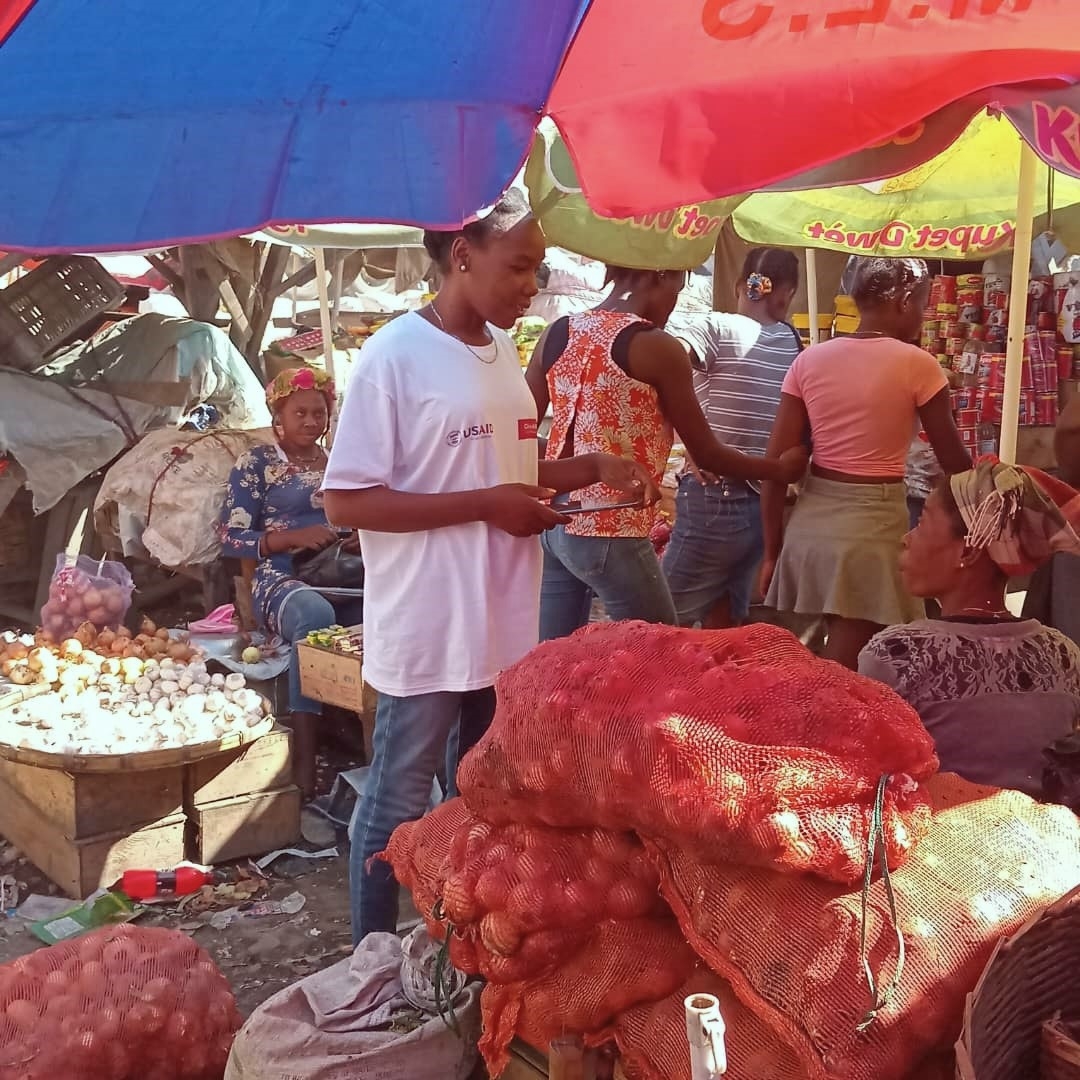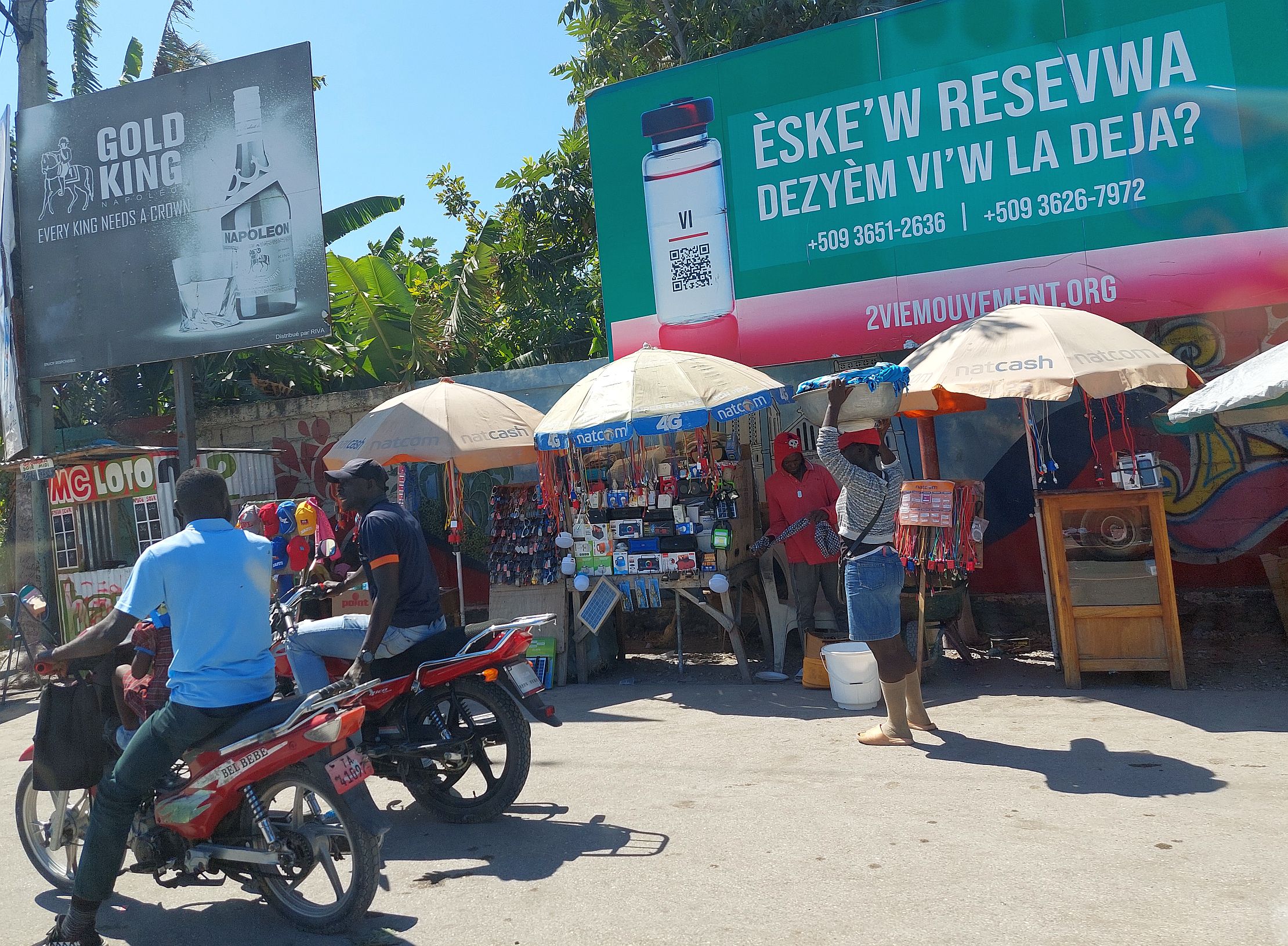Solid waste management is a crucial challenge in Haiti, particularly in communal markets, which are major sources of garbage. The Rival market, located in the town of Les Cayes, is no exception.
Through the Cities Alliance’s LAVIL programme, the municipality is working with market vendors and partners to strengthen solid waste management capacities and improve governance of the market, providing tailored assistance to enhance conditions for both market vendors and visitors.
The Rival market was chosen for the LAVIL programme due to its strategic importance and the support it receives from local authorities and community leaders in enhancing market governance, thereby ensuring the project’s sustainability.
The market, located in the 5th municipal section of Les Cayes, is a vital shopping destination that operates twice a week. Its appeal lies in its ability to draw traders and customers from diverse regions seeking a wide array of products, including corn, livestock, fruits, and vegetables. With approximately 3,000 traders on Saturdays and over 2,500 on Wednesdays, it is one of the busiest markets in the region.
As a first step, a diagnostic was conducted to analyse the market across five governance dimensions: Citizenship, economy, civics, environment, and basic services. The goal was to identify specific difficulties and areas for development in market management, solid waste management techniques, governance, and organisational structures.

Challenges hampering the market’s growth
As the Rival market in Les Cayes emerges as a pivotal trading centre, it faces critical challenges related to access, solid waste management, and essential service affordability that hinder its operation and affect the local community. The diagnostics identified the following key problem areas:
- Access and infrastructure. The market becomes nearly inaccessible during rainy periods due to water accumulation and inadequate shelters. This severely limits access to the stalls for traders and customers alike and adversely affects the market’s overall functionality.
- Solid waste management and hygiene. Around 80 per cent of the market stalls, made from wooden tables and tarpaulins set on the ground, expose goods to dust and increase the risk of food contamination. Inadequate solid waste disposal practices, including the dumping of garbage near an abattoir into a nearby gully, exacerbate environmental and public health concerns.
- High cost of water and sanitation. Many people cannot afford water and sanitation. Water costs 15 gourdes (approximately US$0.11) per recipient and toilets 25 gourdes (approximately US$0.19) per use, leading to behaviours such as ground defecation that exacerbate sanitary conditions.
- Security. The absence of electricity poses security risks, particularly for the predominantly female merchant population. Many reported feeling anxious due to a lack of protective measures in the market. Eighty-four percent of the market’s traders are women known as the Madan Sara, who play an essential role in Haiti’s informal economy. They are directly affected by the market’s lack of security, and the absence of security guards encourages racketeering practices. According to surveys carried out as part of the diagnostics, 36 per cent of merchants say they feel insecure, while only five per cent feel safe.
67 per cent of the traders expressed dissatisfaction with the solid waste management practices in the market.
Achieving a prosperous market that benefits all
Based on the results of the diagnostics, the Les Cayes town council, in collaboration with Cities Alliance and its partners, proposed actions to improve the management of the Rival market. They include:
- Capacity building for enhanced market management. A training programme is planned for municipal officials and officers to address important issues around the management of solid waste and public markets. These measures will also include awareness-raising and communication efforts to increase stakeholder commitment.
- Plan for the development of infrastructure. The needs of small infrastructure and basic services identified in the diagnostic will be prioritised and pilot interventions agreed upon with local stakeholders. The LAVIL programme includes a Community Upgrading Fund (CUF), a financial mechanism aimed at funding small-scale initiatives for community enhancement.
- Integrating the local community in the market development process. To ensure the sustainability of actions, the LAVIL activities will adopt a participatory approach. Consensus-building spaces will be created to foster dialogue between market vendors and the municipalities. Close collaboration with other local stakeholders will be established to support the implementation and ownership of these initiatives, thereby guaranteeing sustainable, comprehensive, and integrated market development.
Under the leadership of the Les Cayes municipality, and in collaboration with Cities Alliance, LAVIL partners, and market traders, the programme will help the Rival market realise its vision of prosperity and sustainability through strategic improvements and community cooperation.
Launched in 2023 with funding from USAID, the LAVIL programme is supporting municipalities in Haiti to strengthen their administrative capacity and financial health so that they can provide adequate services to their populations, with an emphasis on solid waste management and improving the governance of public markets. The municipality of Les Cayes is working with partners including Fondazione AVSI, Institute for Housing and Urban Development Studies (IHS), Habitat for Humanity (HFH), and the Institute for Training and Services (IFOS).



